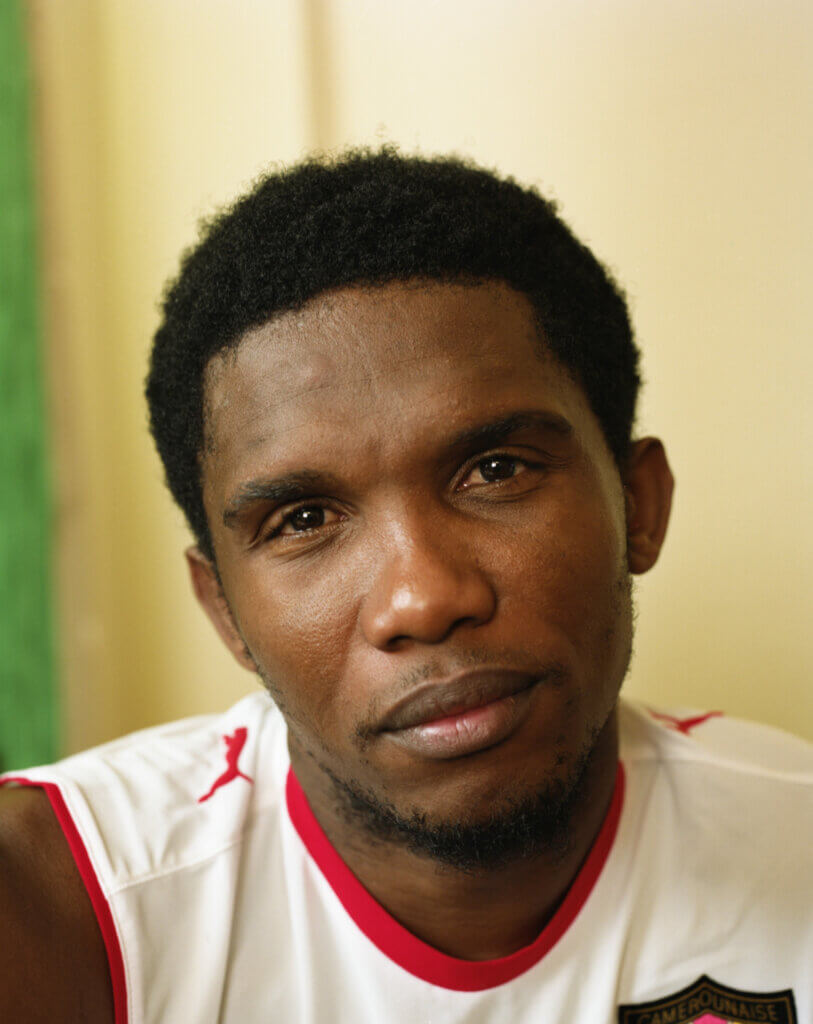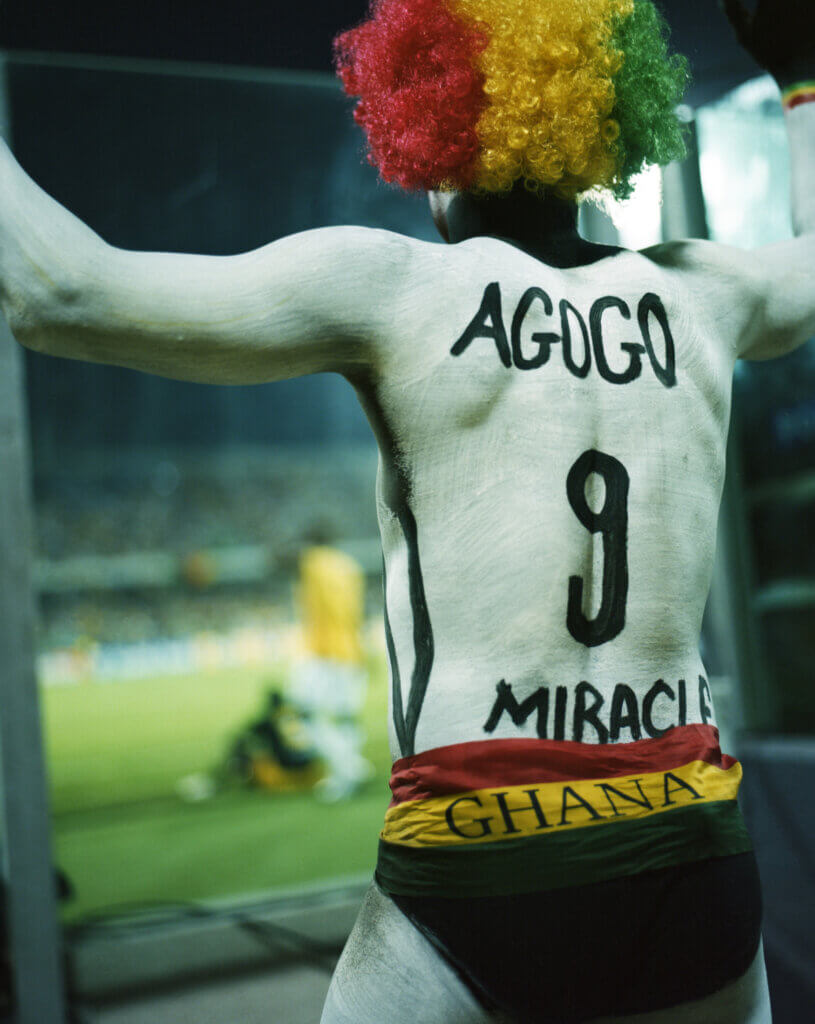III
That's why African football players receive welcomes usually reserved for dignitaries and heads of state. Why souvenirs included Eto’o branded flip-flops, commemorative fabrics, ad campaigns, Drogba-faced watches, rough oil portraits on canvases hawked by street artists, wall murals, and even the names of babies yet to be born. Every single one of the practices we attended was full of fans, young and old, hoping for a smile, a wink, or a wave from their favorite Europe-based footballer.

Most players are fully aware of their importance but humble. Some overplay their hand, though. The most disturbing scene we witnessed was young Egyptian star Mohamed Zidan—one of the rare players on Hassan Shehata’s championship team not to play at home—interrupted his practice to throw children candy and chocolate bars over a barbed-wire fence. That non-spontaneous, ill-conceived initiative created a mêlée that could have had far more severe consequences than a few crying kids.
The Hamburg striker wasn’t a favorite of the fans or his legendary coach. Zidan had to fight for his playing time in the finale, and nabbed (some might say stole) his glory, by bum-rushing Cameroon legend Rigobert Song, knocking him over and passing it to Al Ahly’s Aboutrika, who deposited the game’s only goal, sealing Egypt’s sixth Continental trophy.
Standing up to Zidan and his compatriots that day was, arguably, the biggest African football star of all time, Samuel Eto’o Fils. Living larger than life and dominating La Liga and European defenses from the very front of the attack of Barcelona, Samuel Eto’o shared the limelight with Messi, Henry, Iniesta, Xavi, Piqué and countless legends in what is still argued today was the greatest squad of all time. A near-mythical figure, Eto’o was secretly injured the entire tournament, yet still managed to lead his side to the final. As intimidating a figure as he was, Eto’o was a slight man, fit and strong but lean like a fiddle, nothing extra, just pure technical prowess and efficiency. If Abedi Pelé was  a poet, Eto’o was a three-card monte player. He would slice and dice your favorite defender while you were still marveling at Leo Messi’s tricks. And, like any self-respecting hustler, he would do it with the smile of a petulant child.
a poet, Eto’o was a three-card monte player. He would slice and dice your favorite defender while you were still marveling at Leo Messi’s tricks. And, like any self-respecting hustler, he would do it with the smile of a petulant child.
In Europe, Eto’o was an exceptional player. But just a player. Back home, he was much more than anything we could imagine. A CEO and business mogul to some, he was every politician’s dream, a potential head of state, a man of power by all accounts. He wielded his influence with ease, jumping in and out of his duties to play life-defining matches with his teammates with no immunity against the fury of disappointed expectations. While he was leading the team at the AFCON, he was bankrolling other sports federations in Cameroon, including Volleyball, themselves trying to make it to a world championship. All of that, silently. “I am here for my country,” he told us in the tiny hotel room he welcomed us into. A multi-millionaire in flip flops, eating cashews and not seeing his sacrifices as such, but as his duty. “And I will give it all. I will do it all for my country. Don’t ask me to die because my children would not have a father then, but know that everything I do, everything we do, is for our countries.”